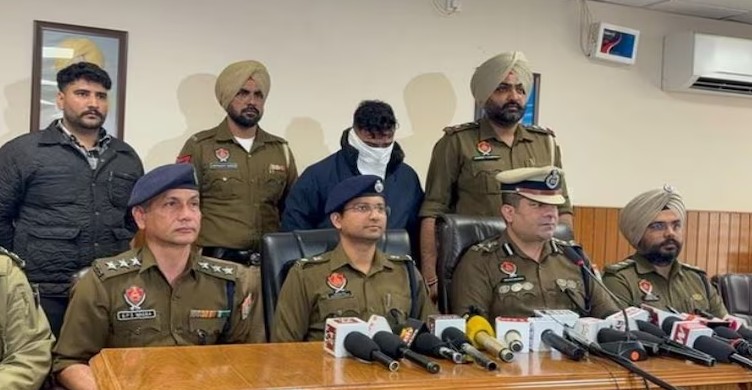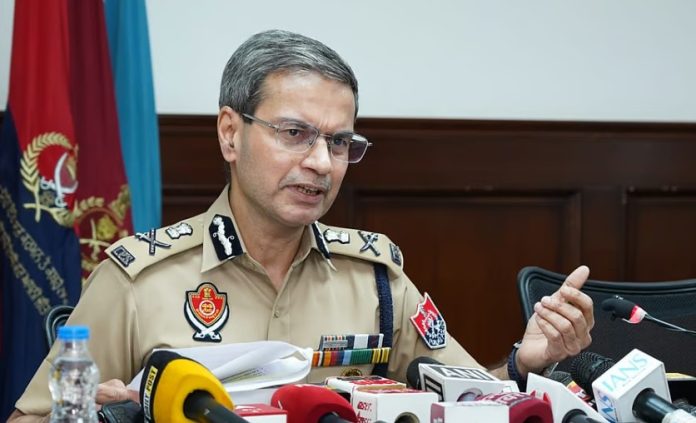In a significant and urgent move against the persistent drug menace in Punjab, the Director General of Police (DGP) has made an impassioned call to action, urging all officers across ranks to step up and lead from the front. With a bold and ambitious deadline set for May 31, the DGP emphasized that the time had come for the Punjab Police to deliver resolute, tangible results in their efforts to dismantle the drug trafficking networks that have plagued the state for decades. Addressing a high-level meeting that brought together senior officers, district police chiefs, and special task forces, the DGP stressed that while Punjab Police had made major strides in the past, this was the time for unparalleled commitment and leadership at every level.
The meeting opened with a somber acknowledgment of the devastating impact drug abuse has had on Punjab’s society, particularly among its youth. The DGP noted that while previous campaigns and enforcement actions had made dents in the illicit trade, the scale and depth of the drug network demanded an extraordinary response. He called on officers to go beyond their routine duties, to approach this mission with the sense of urgency and passion it deserved. The DGP stated that only through proactive leadership, community engagement, and relentless pursuit of traffickers could Punjab hope to see a real, lasting decline in drug supply and addiction rates.
Underlining the importance of field leadership, the DGP directed that officers, particularly at the SHO and DSP levels, must not simply supervise operations from their offices but must personally lead raids, investigations, and surveillance activities. Officers were told that they must have thorough knowledge of the drug-related activities in their jurisdictions and be visibly present on the ground to send a strong message to both the criminal networks and the communities they serve. The DGP was unequivocal: any lapse, negligence, or lack of zeal in this mission would not be tolerated.
The comprehensive strategy laid out by the DGP included intensified intelligence gathering, building stronger informer networks, and closer coordination between local police stations and specialized anti-drug units. He insisted that meticulous planning and flawless execution of operations were crucial to uprooting not just small-time peddlers, but also the larger syndicates supplying and financing the drug trade. Special emphasis was placed on identifying and seizing the financial assets of drug smugglers, thereby cutting off the economic lifelines of these criminal enterprises.

Recognizing that community involvement is essential for a sustained anti-drug campaign, the DGP also instructed officers to reach out to village panchayats, resident welfare associations, school and college administrations, and religious leaders to foster grassroots vigilance and cooperation. Awareness programs aimed at educating the youth about the dangers of drugs were to be intensified, with the police playing a proactive role in prevention alongside enforcement. Officers were encouraged to set up helplines, tip-off facilities, and anonymous reporting mechanisms to make it easier for citizens to share information about drug-related activities without fear of retribution.
The DGP further directed that an internal system of daily reporting and monitoring be established, so that progress could be tracked meticulously. Officers were asked to set daily, weekly, and fortnightly targets for raids, arrests, and seizures. Data-driven policing, he said, would be the backbone of this campaign, ensuring that no effort was wasted and that the results were measurable and accountable. He emphasized the need for professionalism, integrity, and strict adherence to human rights standards during operations to maintain public trust and support.
Another major point stressed was inter-agency cooperation. The DGP revealed that Punjab Police would be working closely with the Border Security Force (BSF), Narcotics Control Bureau (NCB), and intelligence agencies to track cross-border and interstate trafficking networks. With Punjab’s location making it particularly vulnerable to drug smuggling from across the border, collaborative and coordinated operations were deemed critical. Joint task forces were being set up, and regular inter-agency meetings would ensure information flow and synchronized action.
The DGP also announced rewards and commendations for officers and police units showing exemplary performance in the fight against drugs. He said that success stories needed to be amplified both within the force and in the public domain to inspire others and to show citizens that the Punjab Police were truly committed to eradicating this scourge. Officers whose negligence or inefficiency hampered operations would face disciplinary action, including suspensions and transfers, he warned.
In addition to enforcement actions, the DGP stressed on supporting the rehabilitation of drug addicts. He instructed police officers to actively liaise with de-addiction and rehabilitation centers to ensure that individuals caught with minor offenses who showed a willingness to reform were guided towards treatment rather than jail time, wherever legally permissible. This, he noted, was in line with the broader goal of healing Punjab’s society, not just punishing offenders.
The DGP’s address concluded with a strong, emotional appeal to the officers’ sense of duty, honor, and pride. He reminded them that Punjab was counting on them, that parents were looking to the police to save their children’s futures, and that history would judge them not just on the basis of how many cases they registered, but by whether they succeeded in restoring hope, health, and happiness to the people of the state. He said that this was more than a professional obligation—it was a moral and patriotic mission to save Punjab’s soul.
The meeting ended with a collective commitment from all officers present to intensify their efforts and meet the May 31 deadline. As Punjab’s police force gears up for what may be one of the most crucial operations in recent history, the DGP’s call to lead from the front has lit a new fire of determination among the ranks. In the coming weeks, the people of Punjab will be watching closely to see if this new resolve translates into real change on the ground, and whether the dream of a drug-free Punjab can finally come within reach.


